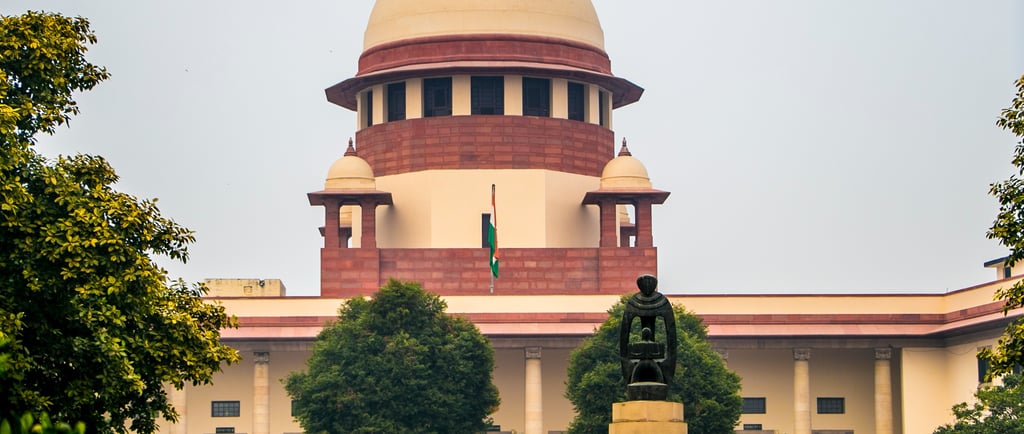Supreme Court to Decide: DGGI v. Gameskraft & Others – The Line Between Skill, Chance, and 28% GST
TAX


India’s booming ₹30,000-crore online gaming industry is at a pivotal moment. The Supreme Court of India is now adjudicating in DGGI (Hqrs.) & Ors. v. Gameskraft Technologies Pvt. Ltd. & Ors. (SLP Nos. 19366–19369 of 2023), a high-stakes legal battle over whether platforms offering skill-based games should be taxed like gambling outlets—and whether 28% GST should apply to the entire bet amount including players’ stakes.
The case tags together multiple writ petitions from platforms and casinos, challenging whether online games, including rummy and fantasy sports, should be treated as “betting and gambling” under Entry 6 of Schedule III of the CGST Act, and whether taxing the gross bet amount is constitutionally valid. The hearing, before a Bench comprising Justices JB Pardiwala and R Mahadevan, began on May 5, 2025, and resumed on July 22.
Why This Case Matters
1. Skill vs Chance: Core Legal Question
The Karnataka High Court’s landmark judgment in Gameskraft Technologies Pvt. Ltd. v. DGGSTI (May 11, 2023) held that rummy is "substantially and preponderantly a game of skill"—whether played offline or online, with or without stakes. Consequently, the GST should apply only to platform fees, not the entire bet amount
However, DGGI contends that the moment money is staked, the game becomes gambling, irrespective of skill. They argue this aligns with Supreme Court rulings such as:
State of Bombay v. R.M.D. Chamarbaugwalla (1957)
State of Andhra Pradesh v. K. Satyanarayana (1968)
M.J. Sivani v. State of Karnataka (1995)
Dr. K.R. Lakshmanan v. State of Tamil Nadu (1996)
These judgments consistently apply the “preponderance test”—if chance dominates or money is staked, it constitutes wagering
2. Valuation under GST: Whole Bet vs Fee?
Following a July 2023 GST Council amendment, a 28% GST is now mandated on the entire bet value under Rule 31A of the CGST Rules. Platforms and casinos argue this is arbitrary, asserting only platform service (commission) revenue is the true “consideration.” This dispute over valuation defines whether revenue should be calculated on gross or net terms
3. Retrospective GST & Constitutional Rights
Platforms are challenging the retrospective application of the 28% rate, arguing it infringes Article 14 (equal protection) and Article 19(1)(g) (business freedom). DGGI maintains the amendment falls within legal boundaries and legitimate interpretation of actionable claims.
Parallel Case: Casino Chips and Gross Gaming Revenue
The same Bench is also hearing petitions from casinos. These operators similarly challenge taxing the entire chip value purchased, asserting only the house edge (their retained income) is service revenue. They argue that the full chip purchase is not look like “consideration” for GST under the law. During July 22 hearings, they emphasized that this valuation method is constitutionally and economically disconnected from actual service provided.
Key Precedents Revisited
R.M.D. Chamarbaugwalla (1957): Prize contests involving uncertain outcomes are gambling, even with skill.
K. Satyanarayana (1968): Rummy is a skill game; betting on it, however, crosses into gambling if the club profits.
M.J. Sivani (1995): Gaming for stakes blends chance and skill, and is gambling.
Lakshmanan (1996): Horse race betting is skill-based only in regulated race contexts.
DGGI argues Karnataka’s ruling misinterprets these precedents; Gameskraft says longstanding distinctions remain valid in the digital era
What’s Next & Possible Outcomes
The hearing is expected to conclude by July end, with the verdict due shortly.
If in favor of platforms: Only platform revenues taxed → Relief for industry, investor confidence, regulatory clarity.
If in favor of DGGI: Entire bet value taxed → Potential decline in online gaming, increased litigation, overseas migration.
In Conclusion
DGGI (Hqrs.) v. Gameskraft & Ors. is a landmark case that will steer India’s digital entertainment regulation—clarifying the GST valuation of online gaming and casinos, affirming the skill-chance doctrine, and balancing state revenue interests against constitutional protections for business.This verdict will redefine how India views digital value creation, and whether the line between skill and chance still stands in law and economics.
